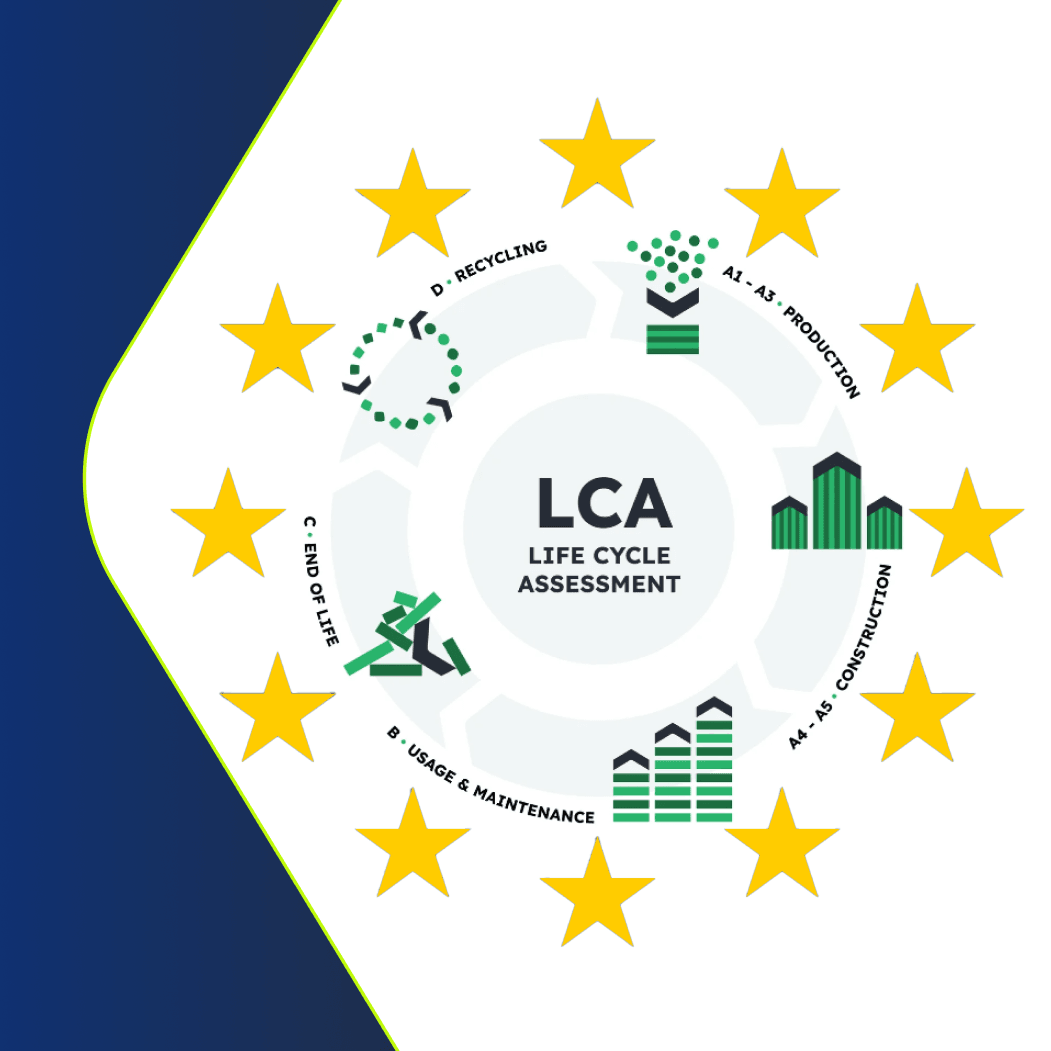New requirement: Digital Product Passport

The new requirements follow from the Ecodesign for Sustainable Products Regulation (ESPR), which came into force in June 2024*. While ESPR initially covered electronics and electrical equipment, the DPP format from this legislation has now been adopted for many other industries, including construction products.
The new CPR
According to the new CPR, manufacturers will be required to issue a combined Declaration of Performance and Conformity (DoPC), replacing the Declaration of Performance (DoP) that has been in place since 2011. The DoPC will need to include environmental information, starting with the Global Warming Potential and later expanding to the 13 core indicator set of the EN 15804:A2. From 2031 onwards, this will also include the 6 additional indicators of EN 15804:A2.

The Digital Product Passport for construction manufacturers
All products must have a DPP before they can be placed on the market. The EU Commission will submit delegated acts for specific product groups that specify the requirements for each DPP. Therefore, we will have to wait a little longer before we know exactly what the DPP for construction products will look like. But one thing is already clear: it will contain at least an Environmental Product Declaration (EPD) as the communication format for environmental data, in accordance with EN 15804:A2. This EPD should be machine-readable according to the ISO 22057 standard.
The DPP could present a significant data challenge. Manufacturers will need to collect and structure data more thoroughly than they may have done before. This is a good opportunity to rethink the way you handle data, as well as to consider automating LCA and EPD processes within your company. R<THINK offers a comprehensive way to structure and handle data collection, combining this with declarations such as EPD, Corporate Carbon Footprint and CSRD ES1.
Register for DPP open by 2026
The requirement to have a DPP available in the decentralized EU system will take effect in January 2028. Starting in July 2026 the register will be open, and manufacturers can place DPPs voluntarily. The digital information on the product and its life cycle must be easily accessible by scanning a data carrier, such as a QR code or NFC tag, which should be attached to the product. The DPP is a decentralized system set up and maintained by economic operators. The economic operator must provide a backup copy of the DPP via a digital product passport service provider (independent third party) after placing a product on the market, to ensure that the information is still available in case of insolvency or termination of the activity.
Support for SME
The EU Commission must support SMEs when drafting ecodesign requirements. It should consider the impact on SMEs and in particular micro-enterprises operating in the respective product sector. The Commission must support SMEs by providing guidelines, offering training, or financial support (including tax concessions) and financing programs, in collaboration with EU Member States.
Interesting reads:
Webinar Ecodesign for Sustainable Products Regulation (ESPR)
Ecodesign for Sustainable Products Regulation (ESPR) - EU information
*The Regulation establishing a framework for the setting of ecodesign requirements for sustainable products (EU) 2024/1781, was published in the EU Official Journal on 06/28/2024 and came into force on 07/18/2024. It replaces the Ecodesign Directive 2009/125/EC, which created requirements for the ecodesign of energy-related products.